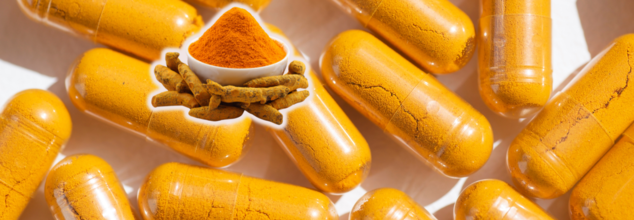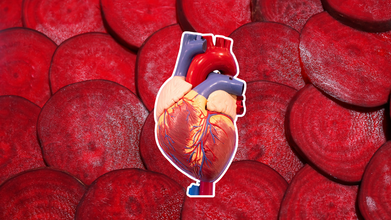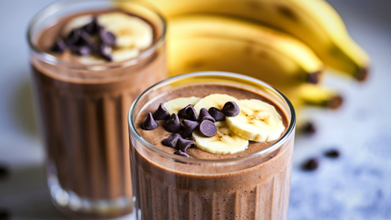- Health Conditions A-Z
- Health & Wellness
- Nutrition
- Fitness
- Health News
- Ayurveda
- Videos
- Medicine A-Z
- Parenting
Woman Ends Up In ER After Taking Turmeric Supplement That Caused Liver Damage – How 'Natural' Supplements Can Be Dangerous?

Credits: Canva
Katie Mohan thought she was doing something good for her body. Like millions of others, the 57-year-old from New Jersey had seen a doctor on Instagram rave about turmeric’s anti-inflammatory properties. Joint pain and inflammation are common issues, and turmeric—a golden spice rooted in ancient wellness practices—seemed like a natural fix. What could possibly go wrong? Quite a bit, it turns out.
After weeks of taking megadoses of turmeric supplements—2,250 mg a day, more than ten times the World Health Organization’s recommended limit—Katie landed in the hospital with severe liver damage. Her case isn't isolated, and it raises urgent questions about how unregulated supplement use is silently harming thousands, especially when mixed with misleading online wellness claims.
Katie began taking turmeric capsules for general inflammation after seeing health advice from a popular wellness influencer. Like many, she believed that “natural” meant “safe”—especially when compared to synthetic medications.
But the problem wasn’t turmeric itself—it was the dose. According to WHO guidelines, a safe upper limit is around 204 mg a day for someone who weighs 150 pounds. Mohan was taking more than ten times that, unaware of the toxic potential.
Within weeks, her body started sending distress signals: stomach pain, fatigue, nausea, and dark urine. Classic signs of acute liver injury.
Blood tests revealed her liver enzymes were 60 times the normal level—a severe red flag for hepatologists. At NYU Langone Hospital, her specialist, Dr. Nikolaos Pyrsopoulos, told NBC News she was “one step away from needing a liver transplant.”
Turmeric
Turmeric has long been celebrated in both traditional medicine and modern wellness for its active compound, curcumin, known for anti-inflammatory, antioxidant, and possibly even anticancer properties. It's generally safe in culinary amounts—think curries, teas, or golden lattes.
But here's the twist- supplements aren’t the same as food. When curcumin is extracted, concentrated, and supercharged—often with black pepper (piperine) to increase absorption—it becomes a potent bioactive agent. Piperine can boost turmeric absorption by 2,000%, making curcumin flood the body in ways our systems weren’t designed to handle.
While curcumin toxicity is rare, the increasing concentration and frequency of supplement use has changed the equation. Doctors now say turmeric is among the most common herbal causes of liver injury in the U.S.
Katie’s case isn’t an anomaly. According to a 2024 study published in JAMA Network Open, cases of drug-induced liver injury (DILI) caused by herbal and dietary supplements nearly tripled between 2004 and 2014 and the trend is still rising.
Lack of regulation. Unlike pharmaceuticals, supplements aren't held to the same safety standards. Doses aren’t standardized. Labels are often vague. And consumers are left to self-diagnose and self-medicate—usually based on hearsay, trends, or influencers. Among the most commonly implicated supplements are:
- Turmeric
- Green tea extract
- Ashwagandha
- Garcinia cambogia
- Red yeast rice
- Black cohosh
Combined, these six supplements are used by over 15.6 million Americans each month, many without medical guidance.
Why the Liver Takes The Toll?
The liver is your body’s primary detox organ. Everything you ingest—medication, supplements, alcohol, even food—is filtered and broken down here. When supplements like turmeric are taken in high doses, especially those enhanced with absorption boosters like piperine, they can overwhelm the liver’s metabolic pathways.
In some cases, high curcumin concentrations may even trigger autoimmune-like responses, where the body’s own immune system attacks the liver, mistaking it for a threat. The symptoms of turmeric-induced liver damage are often subtle at first:
- Fatigue
- Nausea
- Poor appetite
- Dark urine
- Jaundice (yellowing of the skin or eyes)
Many people don’t connect these to their supplements until it's too late. One of the most concerning aspects of Katie’s case is where she got her medical advice: not from her doctor, but from Instagram.
In a culture increasingly driven by influencers, it's easy to get swept up in the wave of quick fixes and natural cures. But the line between science and marketing is getting blurry and it’s making people sick.
According to the CDC, more than 5 million Americans currently live with some form of liver disease, and nearly 60,000 die of liver failure each year. Supplements may seem harmless, but when misused, they can compound existing health risks, especially for those with underlying conditions.
Katie spent six days in the hospital. Thankfully, her liver responded to treatment after she stopped the supplements. The liver is a forgiving organ, but the experience was harrowing.
This Vegetable Could Prevent Arterial Plaque Buildup

Credits: Canva
Arterial plaque buildup is one of the biggest drivers of heart disease, yet most people don’t realise how silently it develops. When fatty deposits, cholesterol, calcium, and cellular waste accumulate along the artery walls, they gradually harden and narrow the vessels, a condition known as atherosclerosis. This restricts blood flow, makes the heart work harder, and increases the risk of heart attack and stroke.
While medication and lifestyle changes are standard recommendations, growing research, including a study by the University of Sunshine Coast, Australia, suggests that one everyday food may offer surprising protection: beetroot.
Why Arterial Blockage Happens
Plaque develops over years. High levels of LDL cholesterol damage the artery lining, allowing lipids to stick and form deposits. Inflammation accelerates this process, making the plaque harder and more unstable. When a plaque ruptures, it can trigger a clot that blocks blood flow completely, leading to a heart attack. Because early atherosclerosis has almost no symptoms, prevention becomes essential.
Beetroot: A Natural Artery-Friendly Food
Beetroot has emerged as one of the most heart-friendly foods due to its exceptional nutritional profile. Rich in nitrates, antioxidants, fibre, minerals, and bioactive compounds, it is being studied for its ability to influence blood pressure, reduce inflammation, and possibly slow arterial stiffening, all key factors in preventing plaque formation.
Lowers Blood Pressure Naturally
One of the best-researched benefits of beetroot is its effect on blood pressure. Dietary nitrates in beets convert into nitric oxide, a molecule that helps arteries relax, expand, and carry blood more efficiently. Clinical studies show that drinking beetroot juice can lower systolic blood pressure by 4–10 mmHg within hours. Over time, this improved vascular flexibility may reduce strain on the heart and keep arteries healthier.
Reduces Inflammation, a Key Driver of Plaque
Chronic inflammation is a major contributor to plaque buildup. Beetroots contain betalains, powerful antioxidants with anti-inflammatory properties. Research suggests these compounds may help lower markers of inflammation in the body, ultimately slowing the progression of arterial damage.
May Limit Arterial Stiffness
Arterial stiffness is a strong predictor of heart attack and stroke. Studies have found that beetroot juice can reduce arterial stiffness in both young adults and older individuals. More flexible arteries allow for smoother blood flow, reducing the pressure that contributes to plaque formation and rupture.
Improves Muscle Recovery and Heart Efficiency
Beetroot has been found to improve oxygen efficiency in the body, meaning muscles — including the heart — need less effort to perform the same tasks. This can indirectly protect the cardiovascular system, especially during physical exertion.
Supports a Healthy Cholesterol Balance
The fiber and antioxidants in beetroot may help improve lipid levels by lowering LDL cholesterol and supporting the removal of excess fats. While not a substitute for medication, it complements a heart-healthy diet.
Looking For A Health Smoothie Recipe, Study Says You Should Skip The Banana

(Credit-Canva)
If you're making a smoothie for a health boost, especially for your brain and heart, you might want to leave out bananas. New research suggests that adding a banana to your drink can actually block your body from absorbing key healthy compounds.
Bananas have always been a big favorite for healthy drinks and desserts. You may have seen many healthy smoothie recipes like banana and coffee smoothie, or bananas and berries, being listed along with other healthy food recipes. While it does have many health benefits, how healthy it is with other nutrients involved has been questioned.
Researchers at the University of California-Davis found that bananas interfere with the absorption of powerful nutrients called flavanols. These compounds are fantastic for health, but if you blend them with a banana, you might not get the benefit you're looking for.
Should You Add Bananas In Health Smoothies?
The researchers found that bananas block how well we absorb flavanol. Flavanols are beneficial natural chemicals found in foods like berries, apples, grapes, and cocoa. When you eat enough of them regularly, they are known to help your memory, reduce swelling inside your body, which is called inflammation, and make your blood flow better.
So, why does the banana stop this? The culprit is a specific enzyme, a kind of protein, that is found in high amounts in bananas. It's called polyphenol oxidase (PPO). This is the same enzyme that makes a peeled banana or apple slice turn brown quickly. The researchers found that when PPO mixes with flavanols in the blender, it somehow stops your body from being able to use them. Lead researcher Javier Ottaviani said it was surprising to see how quickly even just one banana dropped the levels of flavanols your body could absorb.
Why Do Bananas Block Nutrients?
The scientists conducted a very clear experiment to figure this out. They had people drink three different things and then measured the flavanols in their bodies, by testing their blood and urine:
The Banana Test
A smoothie made with banana, which is high in the PPO enzyme.
The Berry Test
A smoothie made with mixed berries, which are low in the PPO enzyme.
The Control Test
A plain capsule of pure flavanols, just to see what 100% absorption looked like.
The results were impossible to ignore, the people who drank the banana smoothie had 84% less flavanols show up in their system compared to the people who took the pure flavanol capsule. This clearly proved that the banana was the reason the healthy compounds weren't getting absorbed.
How to Get Your Daily Flavanols?
If you're trying to meet the daily recommendation of flavanols, which is about 400 to 600 milligrams, to help your heart and overall health, you need to be smart about your smoothies.
The main takeaway is to skip the bananas if you're mixing it with high-flavanol foods like berries. If your smoothie already contains ingredients that are low in the PPO enzyme—like berries, pineapple, oranges, mango, or yogurt—then you are maximizing the amount of healthy flavanols your body will actually get. This finding opens the door for more research into how simple acts of cooking or preparing food, like how you brew tea (a major flavanol source), can change the nutrients you absorb.
Intermittent Fasting and Brain Health: Is There a Risk of Cognitive Decline?

Credits: Canva
Intermittent fasting is an eating plan that alternates between periods of eating and fasting on a set schedule. Studies show that intermittent fasting can help manage weight and even reduce the risk of certain diseases. But some people worry whether fasting could harm the brain or lead to cognitive decline.
Researchers addressed this concern in a paper published in Psychological Bulletin, reporting that short-term fasting of less than 24 hours does not appear to affect the mental performance of adults.
What Is Intermittent Fasting?
Intermittent fasting is an eating pattern that involves alternating between times when you don’t eat and times when you do, sometimes with calorie restrictions on specific days.
This practice dates back thousands of years and is woven into several cultural and religious traditions. Scientists began studying it for weight control in the early 1900s, and recent research has expanded to explore its broader health effects.
There are three widely followed types of intermittent fasting, as per Healthline:
- Time-restricted eating: You eat within a fixed time window and fast during the remaining hours. The 16/8 pattern is the most popular, where you eat during an 8-hour window and fast for 16 hours (including sleep). Other variations include 14/10 and 20/4.
- Alternate-day fasting: You rotate between normal eating days and fasting days, when you consume very few calories, around 500 on average. Some prefer spreading this limited intake across the day, while others eat one small meal.
- 5:2 fasting: Instead of alternating daily, this plan limits calorie intake to 500–800 calories on two chosen days each week, while the rest of the week follows a regular eating routine.
Intermittent Fasting and Brain Health: How Are They Related?
Only recently have scientists started exploring how intermittent fasting influences the brain. Early findings suggest it might offer certain cognitive benefits as we age and even help reduce symptoms of anxiety or depression.
“Many people assume fasting will make it hard to focus or perform well at work or school,” said David Moreau, PhD, a neuroscientist at the University of Auckland and senior author of the study. “Our findings show that for most healthy adults, short-term fasting doesn’t significantly impact mental sharpness.”
The research did note that children and teenagers experienced slight declines in attention and memory while fasting, emphasizing the need for a balanced breakfast before school. Adults, meanwhile, tended to perform a little worse later in the day while fasting, possibly because hunger can heighten natural dips in alertness due to circadian rhythm.
“Humans evolved with periods of limited food, so it makes sense our brains can function well without constant eating,” Dr. Moreau added. “Still, younger people seem more affected, which aligns with their higher energy demands.”
Intermittent Fasting Unlikely to Cause Cognitive Decline
According to recent studies, as per Healthline, intermittent fasting is unlikely to cause cognitive decline. Experts who reviewed the findings say it reinforces the safety and benefits of fasting. “The key takeaway is that fasting doesn’t harm mental performance,” said Dr. Mir Ali, bariatric surgeon and medical director at the MemorialCare Surgical Weight Loss Center, California.
The meta-analysis reviewed 63 studies across the world, including over 3,400 participants. Most individuals fasted between 8 and 24 hours, with a median duration of 12 hours.
Researchers concluded that fasting “neither enhances nor impairs mental performance.” They identified three main factors that influence cognitive function:
- Fasting duration
- Type and timing of the cognitive test
- Individual characteristics, such as age or body composition
They also noted that glycogen—the body’s stored form of glucose provides energy during normal eating. When glycogen levels fall during fasting, the body shifts to using ketones derived from fat as an alternate energy source.
How To Practise Intermittent Fasting?
Intermittent fasting is not suitable for everyone, particularly those with a history of eating disorders or women who are pregnant or breastfeeding. However, for most healthy adults, it offers flexibility in timing and approach.
During fasting hours, you can still drink water, black coffee, or unsweetened tea. Light exercise is also permitted. Healthline advises focusing on nutrient-rich meals during eating periods, staying hydrated, and maintaining good sleep habits.
For beginners, it’s best to start slowly, perhaps by fasting for 6 to 8 hours at first, then gradually extending to 8–10 hours, and eventually to the more balanced 12–14-hour fasting window.
© 2024 Bennett, Coleman & Company Limited

